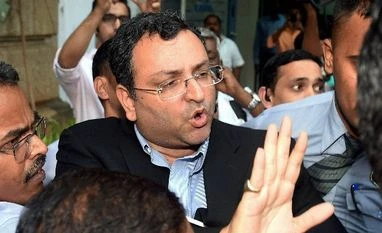Coimbatore-based electric vehicle manufacturing company Ampere Technologies, that holds investments made by Ratan Tata, has denied that Nano gliders were supplied to them, according to the allegations made by former Tata group chairman Cyrus Mistry.
Mistry accused Tata, in a five-page letter sent to the directors of Tata Sons, of having forced to keep production of the Nano going in order to supply gliders of the mini car to a firm in which he held a stake.
“Another challenge in shutting down Nano is that it would stop the supply of the Nano gliders to an entity that makes electric cars and in which Mr Tata has a stake,” Mistry had mentioned in that letter.
P Bala, chief technology officer, Ampere Technologies, said, “There is no question of us working on an electric Nano or its gliders because we do not have any plan to get into electric cars. We are limiting our work to two- and three-wheelers and small commercial vehicles.”
Ratan Tata had invested an undisclosed amount (less than ~10 crore) in Ampere Technologies last year, after being impressed by the work and vision of entrepreneur Hemlata Annamalai.
Ampere aims to become the ‘Tesla of the poor’, providing electric mobility solutions at a much affordable price, according to Bala. “Ratan Tata’s involvement in Ampere Technologies has been limited to just very few emails. There has not been much of communication between us. Supplying Nano gliders to us for research and development work is impossible,” said Bala.
Further, Bala also dismissed the purported fact stated by Mistry in the letter that Tata holds direct stake in the company.
“Tata’s investment is presently in single digit crore and would later become double digit according to his investment strategy. He has not picked up any direct equity in the company but has been allotted preference shares which can be converted in equity later as per his choice,” Bala added.
Tata Motors has been independently working on an electric variant of the Nano since the last seven years. The company even showcased the e-Nano in 2010 at the Geneva Motor Show, two years after its worldwide debut at the Auto Expo in New Delhi.
Tata Motors fast tracked testing of the electric Nano again after demand for electric vehicles hit the roof last year, following increased activism against diesel engines and success of Tesla, the US-based electric vehicle manufacturer.
Mistry accused Tata, in a five-page letter sent to the directors of Tata Sons, of having forced to keep production of the Nano going in order to supply gliders of the mini car to a firm in which he held a stake.
“Another challenge in shutting down Nano is that it would stop the supply of the Nano gliders to an entity that makes electric cars and in which Mr Tata has a stake,” Mistry had mentioned in that letter.
More From This Section
Gliders comprises the shell of a vehicle without any in-built propulsion system, such as engine and powertrain. They are sometimes used for significant re-engineering purposes such as replacing conventional engines with electric motors.
P Bala, chief technology officer, Ampere Technologies, said, “There is no question of us working on an electric Nano or its gliders because we do not have any plan to get into electric cars. We are limiting our work to two- and three-wheelers and small commercial vehicles.”
Ratan Tata had invested an undisclosed amount (less than ~10 crore) in Ampere Technologies last year, after being impressed by the work and vision of entrepreneur Hemlata Annamalai.
Ampere aims to become the ‘Tesla of the poor’, providing electric mobility solutions at a much affordable price, according to Bala. “Ratan Tata’s involvement in Ampere Technologies has been limited to just very few emails. There has not been much of communication between us. Supplying Nano gliders to us for research and development work is impossible,” said Bala.
Further, Bala also dismissed the purported fact stated by Mistry in the letter that Tata holds direct stake in the company.
“Tata’s investment is presently in single digit crore and would later become double digit according to his investment strategy. He has not picked up any direct equity in the company but has been allotted preference shares which can be converted in equity later as per his choice,” Bala added.
Tata Motors has been independently working on an electric variant of the Nano since the last seven years. The company even showcased the e-Nano in 2010 at the Geneva Motor Show, two years after its worldwide debut at the Auto Expo in New Delhi.
Tata Motors fast tracked testing of the electric Nano again after demand for electric vehicles hit the roof last year, following increased activism against diesel engines and success of Tesla, the US-based electric vehicle manufacturer.
)